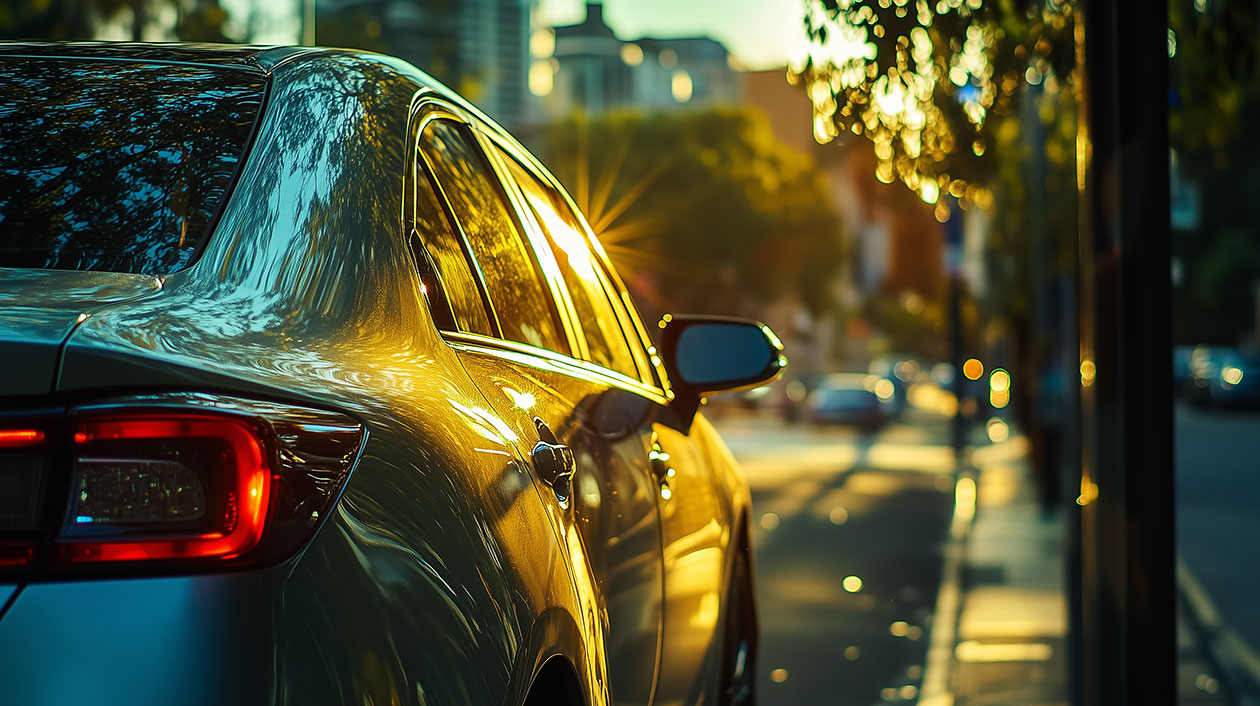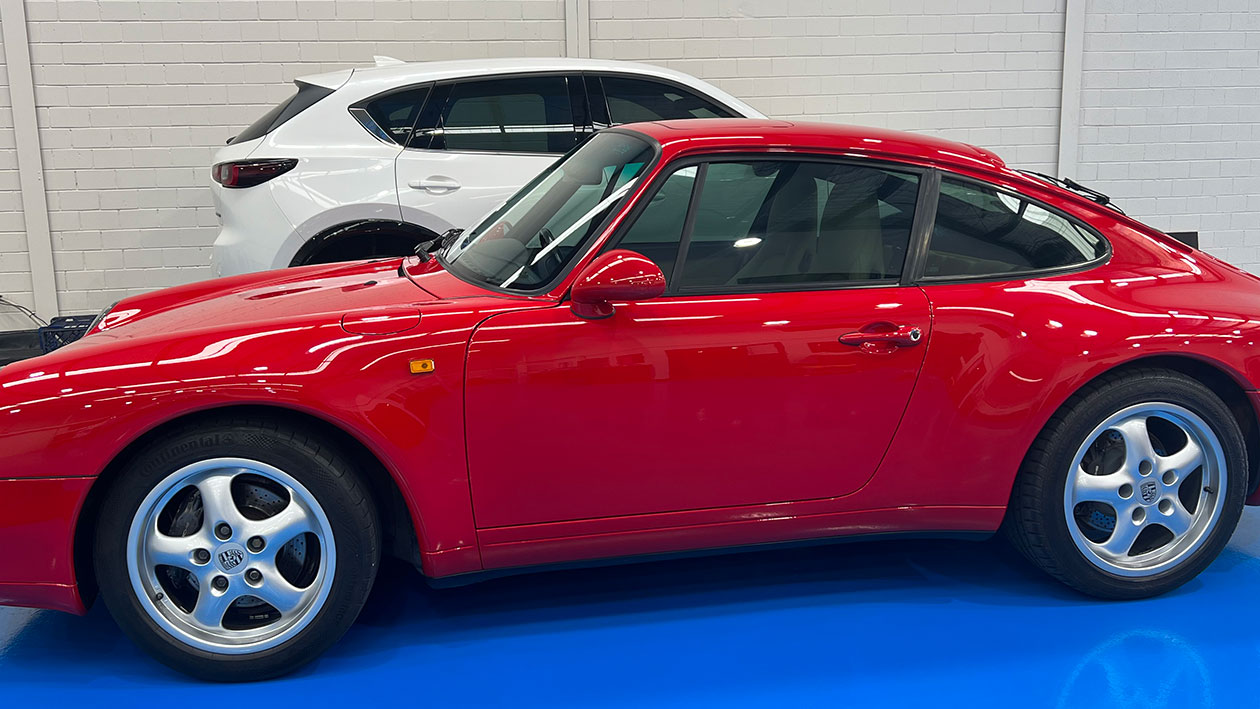
The Australian sun is powerful. It’s also potentially harmful. Ultraviolet (UV) radiation can damage furniture, deteriorate your car interior, cause skin damage, and increase energy costs. UV protection window tinting offers a solution. It blocks harmful rays, protecting your home and health.
The Problem: UV Radiation in Australia
Australia experiences some of the highest levels of ultraviolet (UV) radiation in the world, which can cause sunburn in as little as 11 minutes on a sunny day. This high UV exposure is a significant health concern as it is the primary cause of skin cancer in the country. UV radiation levels are not dependent on temperature, which can be high even on cool or overcast days [1][3].
The UV Index is a tool used to measure UV radiation levels, ranging from low (1-2) to extreme (11+). In Australia, the UV Index is monitored by the Australian Radiation Protection and Nuclear Safety Agency (ARPANSA) and is available in real-time for various locations [1][2].
UV radiation is categorised into three types: UVA, UVB, and UVC. While UVC is entirely absorbed by the ozone layer, UVA and UVB can reach the Earth’s surface and cause skin damage, including sunburn and skin cancer [1]. In Australia, UV exposure is responsible for approximately 95% of melanoma cases and 99% of non-melanoma skin cancers, making it a critical public health issue [4].
To protect against UV radiation, Australians are advised to use a combination of sun protection measures, including wearing protective clothing, applying sunscreen, and seeking shade, especially when the UV Index is 3 or above [3][4]. For your car and home, window tinting is an affordable solution that protects against UV radiation.
What is the best window tint for UV protection?
The best window tint for UV protection is typically ceramic window tint. Ceramic tints are considered the gold standard for UV protection because they can block up to 99% of UV rays without interfering with electronic devices. This type of tint also offers excellent heat rejection, glare reduction, and maintains clarity and visibility, making it a worthwhile investment despite being more expensive than other types of tints.
When selecting a window tint for UV protection, consider the following factors:
- Material: Ceramic tints are the most effective for UV protection. They outperform dyed and metallic tints, which offer less UV protection and can interfere with electronic signals.
- UV Rejection Rate: For optimal protection, look for window tint with a UV rejection rate of 99% or above.
- Visible Light Transmission (VLT): The level of darkness does not necessarily correlate with UV protection. Even clear or light-coloured tints can effectively block UV rays if they are of high quality.
- Heat Rejection: Consider the tint’s ability to reject heat, which can enhance comfort by keeping the interior cooler.
- Compliance and Warranty: Ensure the tint complies with local regulations and comes with a warranty for long-term performance and protection.
Considering these factors, you can select a window tint that provides excellent UV protection while meeting your specific needs and preferences.

What colour tint is best for UV protection?
The colour of the tint does not significantly impact its ability to provide UV protection. Instead, the effectiveness of a window tint in blocking UV rays depends more on the quality and material of the tint rather than its colour. High-quality ceramic tints are considered the best for UV protection, as they can block up to 99% of UV rays, regardless of colour. Even clear or light-coloured tints can effectively block UV rays if they are made from high-quality materials. Therefore, when choosing a window tint for UV protection, focus on the material and UV rejection rate rather than the colour.
Is UV protection worth it?
UV protection is worth it due to its significant health benefits. Exposure to ultraviolet (UV) radiation can cause various forms of damage, including skin cancer, sunburn, and eye damage. Here are some reasons why UV protection is essential:
- Skin Protection: UV radiation is a significant cause of skin cancer, including melanoma and non-melanoma types. Protecting your skin with sunscreen, clothing, and shade can significantly reduce the risk of developing skin cancer [6].
- Eye Protection: UV rays can also damage your eyes, leading to cataracts, macular degeneration, and photokeratitis. Wearing sunglasses with UV protection can help prevent these issues [7].
- Children’s Health: Protecting children from UV exposure is particularly important, as a significant portion of UV damage occurs before age 20. Early protection can help prevent health issues later in life.
Does factory tint stop UV?
Factory tint, often referred to as “privacy glass,” provides some level of UV protection but is generally minimal. Factory tint primarily reduces visible light and enhances privacy rather than blocks UV radiation effectively. While it may offer some UVB protection, it does not significantly reduce UVA exposure, which is more harmful and penetrates deeper into the skin.
Benefits Beyond UV Protection
UV window tinting offers a range of benefits beyond simply blocking harmful rays:
- Enhanced Comfort: Window tinting minimises glare from the sun, improving comfort while driving or working on computers. Tinted windows also create a more consistent indoor temperature by blocking solar heat, which can be particularly important for office windows.
- Increased Privacy: Certain tints allow you to see outside, while preventing others from seeing in, enhancing privacy.
- Added Safety and Security: Window film adds a layer of protection, holding shattered glass together in case of accidents or break-ins.
- Improved Aesthetics: Window tinting can complement your home’s style and create a more cohesive look.
Considerations Before You Tint
Before choosing UV protection window tinting, consider these factors:
- Cost: Tinting costs vary based on window size, film type, and installer expertise. Obtain multiple quotes for comparison.
- Installation: Professional window tinting installation ensures proper application and warranty coverage.
- Warranty: Reputable installers offer warranties covering film defects or installation issues.
- Local Regulations: Some areas have restrictions on window tint darkness. Research local regulations beforehand.
- Maintenance: Tinted windows require minimal maintenance, typically cleaning with a mild soap solution.
UV protection window tinting is a wise investment. It provides valuable protection against harmful UV rays, enhances comfort, and offers numerous other benefits. By understanding the different types of tinting and considering the factors mentioned, you can make an informed decision that meets your needs and protects what matters most.
Citations:
[1] https://www.cancer.org.au/cancer-information/causes-and-prevention/sun-safety/uv-index
[3] https://www.sunsmart.com.au/uv-radiation
[5] https://www.laroche-posay.com.au/blog/the-uv-index-how-it-helps-you-stay-safe-in-the-sun.html

